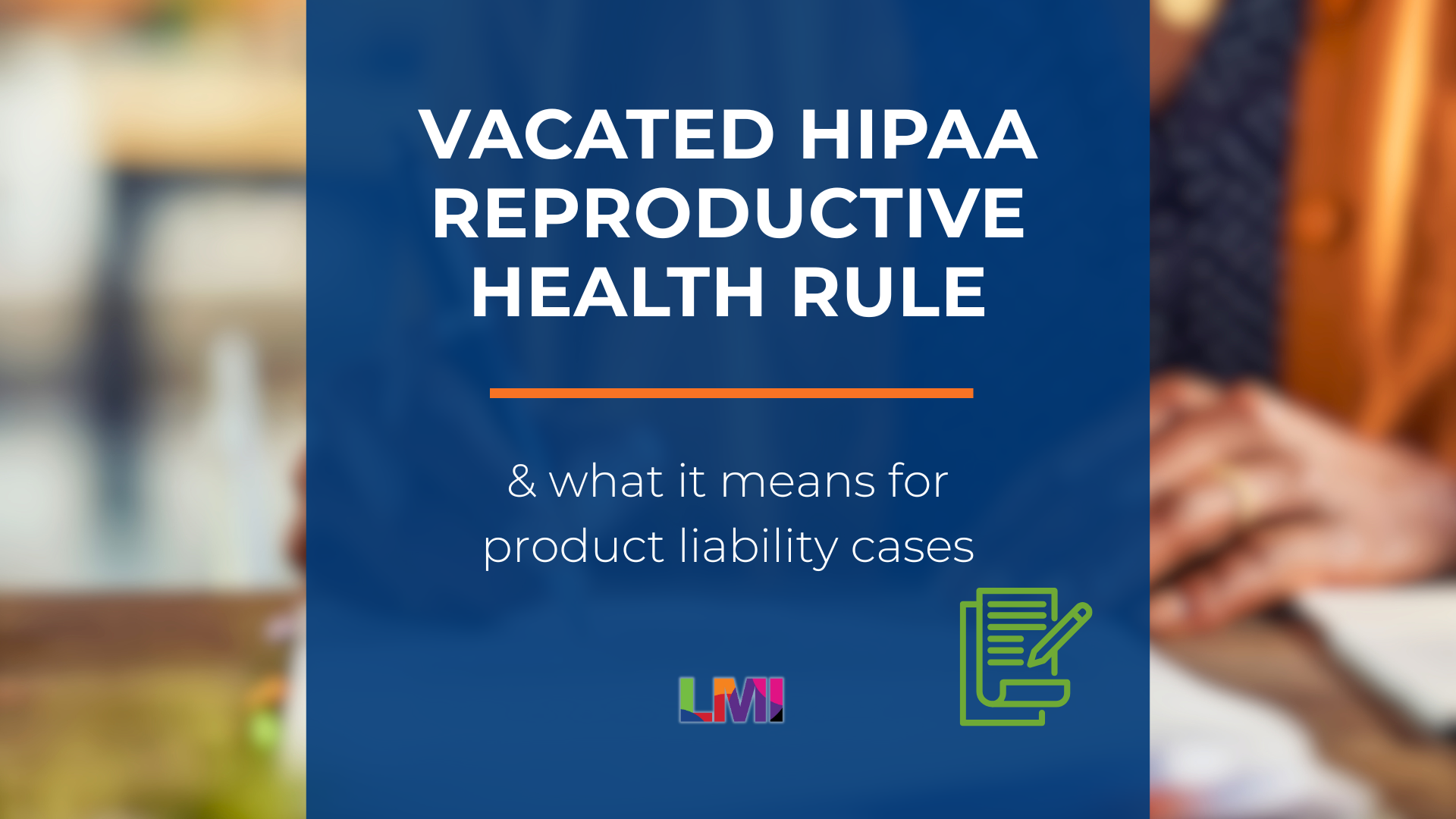
August 25, 2025
In June 2025, a federal court vacated nearly the entire 2024 HIPAA rule that aimed to enhance privacy protections for reproductive health information. While most legal commentary has focused on the constitutional and regulatory implications, the effects are already being felt, particularly in medical record requests tied to product liability litigation.
Whether you're counsel for plaintiffs or defendants, or managing litigation internally, understanding how this change affects medical record retrieval is critical. Here’s what you need to know—and how a trusted records retrieval partner can help you stay ahead of potential delays or red tape.
| ||
|
| A formal statement confirming that certain information is true. |
|
| The Health Insurance Portability and Accountability Act, a federal law protecting patient privacy and medical information. |
|
| Adhering to laws and regulations governing health care and patient privacy. |
|
| Documents that contain a patient’s health history and treatment information. |
|
| A document that health care providers must give patients explaining how their health information is used and protected. |
|
| The legal rights patients have to access their health information. |
|
| Any individually identifiable health information is protected under HIPAA, including medical records and personal details. |
|
| Rules or practices that health care providers follow when managing patient information. |
|
| Medical information related to pregnancy, contraception, abortion, and other aspects of reproductive care. |
|
| A court decision that nullifies or sets aside a previous ruling or rule. |
A Quick Recap: HIPAA Final Rule on Reproductive Health Privacy
The 2024 rule expanded the definition of reproductive health information under HIPAA, added new limits on disclosing this PHI for law enforcement or civil investigations, and introduced a formal attestation process for certain disclosures. Covered entities were required to update NPPs and workflows accordingly.
That rule was vacated by a Federal court in Texas in June 2025, citing statutory overreach by the United States Department of Health and Human Services (HHS). While that means the attestation requirement is no longer enforceable, many healthcare providers have already implemented policy changes—and not all have reversed course.
|
|
|
|
|
|
|
|
|
|
|
|
You May Still Encounter Delays or Denials with Medical Record Requests
Even though the rule was struck down, some providers continue to treat reproductive health data with heightened caution. You may experience:
- Providers requesting attestations based on outdated internal guidance
- Delays in processing requests involving reproductive procedures or related terms
- Unnecessary removal of information due to concern of noncompliance with evolving state laws
For litigators and legal teams, this can mean timeline risk in discovery or incomplete records during critical case stages.
State Laws Still Add Complexity to Medical Record Retrieval
The HIPAA rule may be vacated federally, but state laws haven't disappeared. In states with strict reproductive health laws or data privacy protections, providers may still limit disclosures. That is especially important in multi-jurisdictional product liability cases.
Tips for Counsel: How to Request Medical Records Now
Key steps to reduce delays:
- Be specific about your record requests. Avoid vague terms that might trigger overcautious redactions.
- Ask upfront whether the provider requires an attestation and cite the vacatur ruling if needed.
- Understand the state-level laws where the provider operates.
While many of these steps may fall to your legal team, a dedicated medical records retrieval partner can manage the process from start to finish, anticipating complications, resolving them directly with providers, and ensuring your timelines remain intact.
How LMI Can Help Clients Navigate Medical Record Uncertainty
As a medical records partner, we’re monitoring provider workflows, state regulations, and industry behavior following the vacatur. Our team helps clients:
- Flag and explain unexpected record redactions
- Communicate directly with provider health information management departments
- Clarify legal rationale for full release of records under HIPAA and state law
- Identify providers' specific authorizations and release requirements
We act as an extension of your litigation team, ensuring the record retrieval and review process doesn't slow down your case.
The legal debate over reproductive health data is far from over, but with the right approach and a proactive records retrieval partner, you can manage risk, maintain timelines, and keep your cases moving.
What We Handle on Your Behalf: Reproductive Health PHI Records Retrieval
For product liability teams navigating HIPAA uncertainty
LMI proactively:
- Monitors and interprets state-level privacy laws affecting PHI disclosure
- Communicates directly with providers about vacated attestation requirements
- Challenges providers who apply outdated or overly cautious policies
- Escalates when records are withheld, redacted, or delayed due to confusion over HIPAA changes
- Keeps your case timelines intact by anticipating obstacles early
Need help navigating medical record access for complex cases? Contact us to streamline your medical records retrieval today.